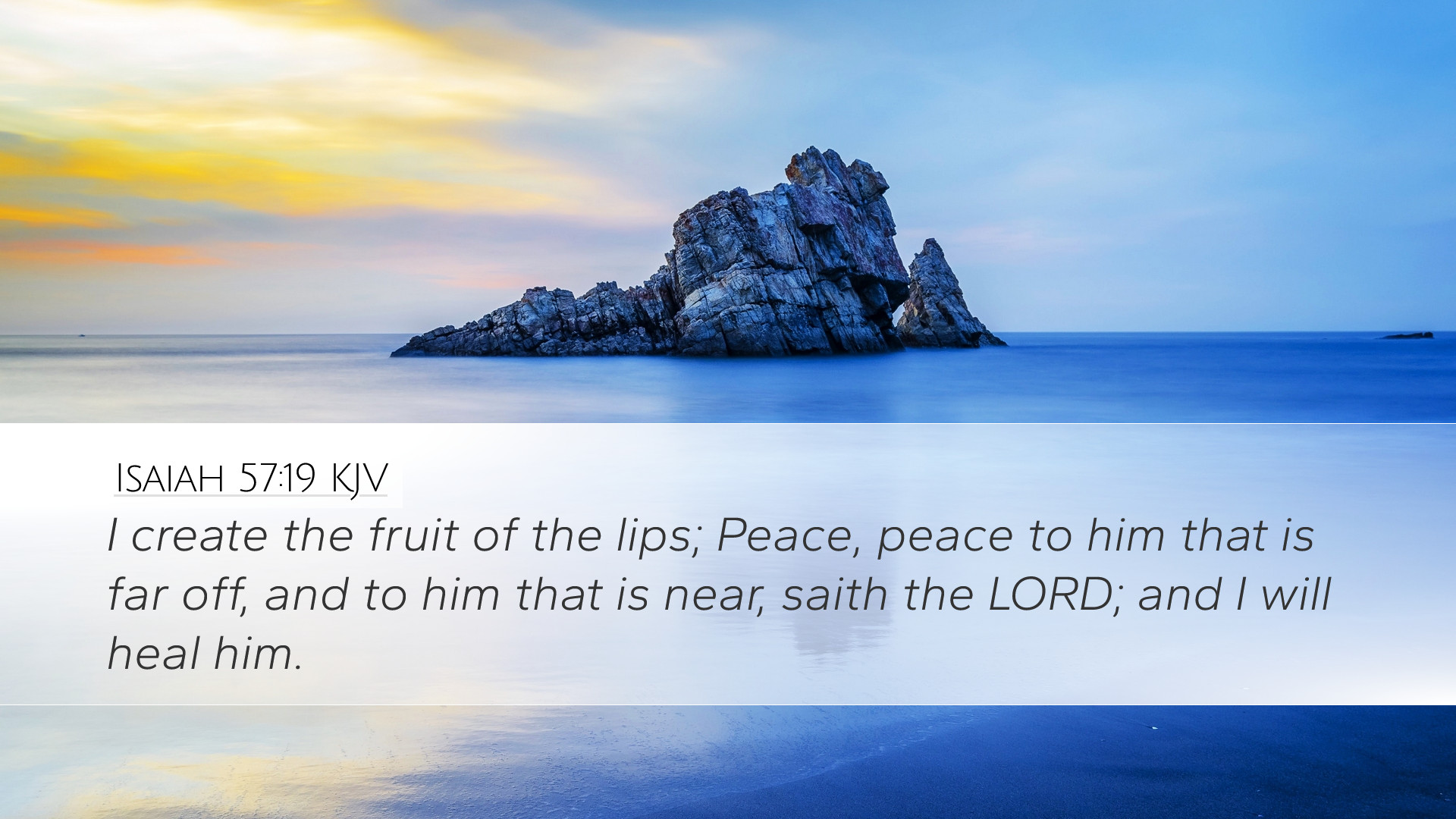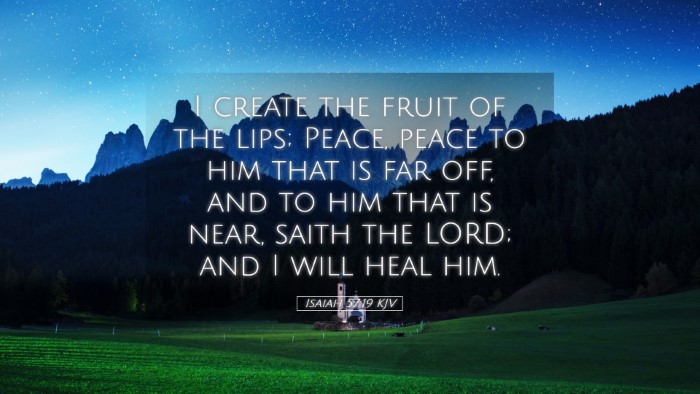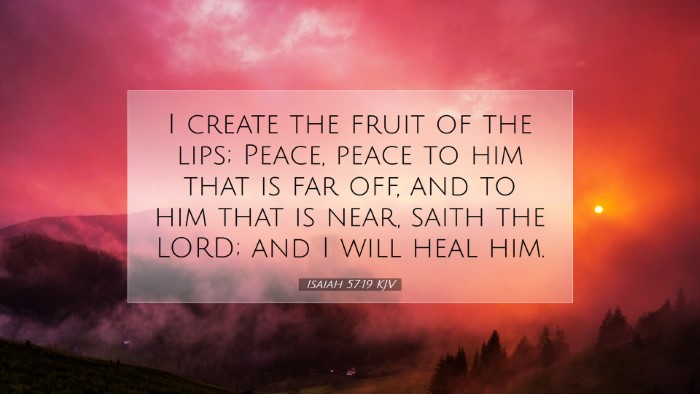Commentary on Isaiah 57:19
Verse Text: "I create the fruit of the lips; Peace, peace to him that is far off, and to him that is near, saith the Lord; and I will heal him." (Isaiah 57:19)
Overview
This verse encapsulates a profound promise from God, offering both peace and healing. In the context of the larger passage, it speaks to God's mercy and restorative power, extending to all people, regardless of their distance from Him, whether near or far.
The Significance of 'Creating the Fruit of the Lips'
God declares that He creates the "fruit of the lips." This phrase can be understood as the outcome of what individuals speak. According to Matthew Henry, this indicates that God is the source of true praise and worship that comes from the heart, which manifests itself verbally. The 'fruit of the lips' reflects the inner state of an individual and shows that genuine expressions of peace come from a life transformed by God.
Peace as a Divine Gift
The repetition of "Peace, peace" emphasizes its importance and fullness. As Albert Barnes notes, this peace is not merely the absence of conflict but a deep-seated tranquility that can only come from God. It signifies reconciliation—both with God and within oneself. It extends to "him that is far off" (the Gentiles) and "him that is near" (the Israelites), illustrating that the peace of God is universal.
The Creative Power of God
In the creative declaration, "I create," we see God's sovereignty and authority. Adam Clarke emphasizes that this signifies God’s ability to initiate peace and healing supernaturally. This act of creation showcases His divine intent—transcending the temporal limitations of human capability to bring about true change in hearts.
Healing as a Comprehensive Act
The promise, “and I will heal him,” points towards God’s role as the ultimate healer. This healing is holistic, addressing physical, emotional, and spiritual needs. Both Matthew Henry and Albert Barnes agree that this demonstrates God's commitment to restoring wholeness to His people. The healing referred to is often seen as restorative, bringing not just peace but also reconciliation to relationships strained by sin and distance from God.
Contextual Interpretation
To fully appreciate the impact of this verse, one must consider it within the context of Isaiah’s audience. The people of Israel were experiencing exile, despair, and a feeling of separation from God. According to Adam Clarke, this promise was particularly poignant for those grappling with their circumstances, as it underscored God’s unwavering commitment to His covenant and to bringing back those who repent.
The Call to Response
This verse not only relays a promise but also implies a call to response. As scholars like Matthew Henry point out, for individuals to receive this peace, there is a need for openness and an acknowledgment of God’s sovereignty in their lives. This process requires faith and repentance, drawing near to God who promises to draw near to them.
The Universality of God's Peace and Healing
God's invitation for peace reaches beyond geographical and cultural boundaries. He offers His healing touch to all who seek Him. Albert Barnes illustrates that this text vividly portrays the inclusive nature of the Gospel. It foreshadows the New Testament message that salvation is for both Jews and Gentiles, a theme that is reiterated throughout Scripture.
Conclusion
Isaiah 57:19 offers a profound reminder of God's nature as a Creator of peace and a Restorer of wholeness. For pastors, students, theologians, and Bible scholars, this passage encourages the understanding that regardless of one’s distance from God, His grace abounds. The verse not only provides comfort but also challenges believers to be messengers of this peace in a world that desperately needs healing.


